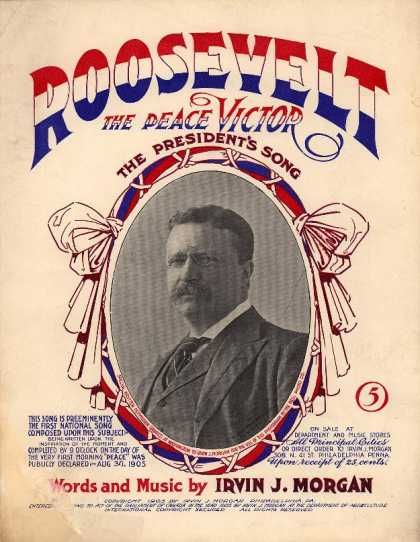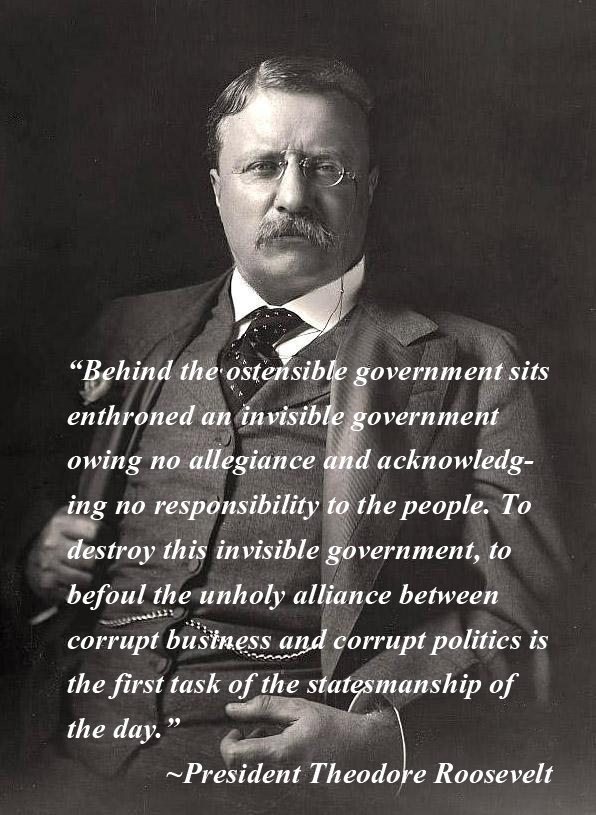This is the third in a series examining the issues in the 2024 presidential election. To see other articles in the series, click on the “2024 Elections” link under the heading “Politics” in the above menu.
Score
Harris -6 Trump +1.5
While Theodore Roosevelt was known to engage in bellicose rhetoric, his foreign policy as president was based on adroit diplomacy. Roosevelt knew that the world was in a transition where nations such as the United States, Germany and Japan were becoming powers as the British Empire was reaching its peak. He used diplomatic negotiation to prevent a German intervention in Venezuela and to stabilize great power rivalries in Europe and in Asia, thus increasing America’s soft power.
The Biden-Harris ticket campaigned on the slogan “a foreign policy for the middle class”. After the election, they implemented the exact opposite- a policy that desperately tried to maintain the American unipolar hegemony of the 1990’s and extended our scarce resources far from our limited national interests. The only people served by such a policy were business and foreign elites.
The correct worldview is that we now live in a period of great power competition on its way to becoming a G0 world; that is, a world where there are only regional powers and no superpowers. In a G0 world, the US would be the preeminent power in the Western Hemisphere with the ability to influence other issues in the world primarily by diplomacy. In the meantime, the US must live and act in the current great power reality while planning for this future state. I advocated abandoning liberal interventionism in favor of a realist approach in my series “Nationalist Foreign Policy -a History” (see the Foreign Policy tab above). Trump and Harris have very different philosophies on these crucial issues.
National Security Strategy
Every new presidential administration produces a document called a National Security Strategy (“NSS”) that shapes American foreign policy as well as its perception overseas. Comparing those of the Biden and Trump Administrations reveals a marked difference in strategic emphasis and priorities.
The Biden NSS speaks repeatedly of addressing “shared challenges” that “are not secondary to geopolitics but are at the very core of security and should be treated as such.” This would be accomplished by a “rules-based international order” that would grow “the connective tissue” between the US and other nations to spread democracy and strengthen national security. In addition, it expressly seeks to use foreign policy to “spur reform and rejuvenation domestically”. A more globalist, liberal interventionist policy could not be imagined. The best that can be said is that it is a statement of how to achieve a G0 world, while trying to wish away the geopolitical realities of today’s world.
In contrast, the NSS of the Trump Administration leads with the statement the government’s first duty is to its citizens. It expressly rests on a “principled realism”. The most fundamental duty of the President is to protect the homeland, our way of life and American interests overseas. It recognizes that we are in a great power rivalry with China and Russia. Our allies and other countries can “magnify our power” but are expected to help us address threats.
We can assume that Vice President Harris and former President Trump would implement these past strategies of their respective administrations, though the details may differ. Harris maybe even more globalist if her administration includes more radical “progressive” globalists as this article suggests. Based on their record and this possibility, she deserves a minus 2 score. Trump has often said he believes in a more “transactional” foreign policy, which is consistent with a realist approach. His running mate Sen. JD Vance also wants to reorient American foreign policy away from the Biden view to a more realist strategy (see this article). The Trump– Vance ticket thus earns a plus 1.5 score on this fundamental issue.
Ukraine and European Policy
The Russo – Ukraine war has now ground on for more than two years. The Ukrainians achieved a dramatic victory in preventing Russian forces from taking Kyiv. We now know that a peace could have been negotiated at that time, but the US and Britain encouraged Ukraine to continue the war to attempt to recover the Donbas region and Crimea (see this article from Foreign Affairs magazine– subscription required). The West, particularly the United States, then begin shipping arms to Ukraine, but only to the extent it did not provoke Russia to escalate the war into NATO. The result has been another “forever war” with no clear strategy or achievable goal at the cost of thousands of Ukrainian lives.
The war has also proved to be a crucible of fire testing the strength of NATO and our European relationship. Eastern Europe stepped up to support Ukraine while Western Europe, in particular Germany, gave limited support. Some NATO members such as Hungary actually opposed aid and overtly sympathized with Russia. These divisions call into question whether it is in our interest to remain a NATO member, especially in light of Europe’s potential defense capability (see this past post on the issue).
The next administration needs to concentrate on bringing peace to this conflict. Ukraine will have to accept the loss of the Donbas and Crimea and Russia will have to accept the sovereignty and, thus the loss, of Ukraine. At the same time, we should have no illusions about Vladimir Putin. He is a ruthless dictator who, among other war crimes, orchestrated the kidnapping of hundreds of Ukrainian children to be placed with Russians. We cannot have normal relations with him. For example, we should immediately kick the Russians off of the International Space Station.
However, the increasing importance of East Asia and our neglect of Latin America require a reassessment of our NATO commitment. Vice President Harris appears committed to continuing the war in Ukraine and our current NATO commitment despite these realities and so deserves a minus 2. In contrast, Trump pushed Europe to increase its defense spending to counter Russia and criticized Germany for its reliance on Russian oil and gas. He has said he would settle the Ukraine War even before he takes office, though without specifying how. His past efforts and current attitude merits a plus 1 score in this area.
Israel and Middle East Policy
As of this writing, Iran has just launched a barrage of missiles at Israel in retaliation for its killing of Hezbollah leader Hassan Nasrallah in Lebanon. It is an escalation of a war that has extended far beyond the originally stated goal of freeing the hostages that were taken during the October 7 raid of Hamas. Instead, Israel has used the raid as an excuse to widen the conflict to attack Hezbollah as well as expand its control over the West Bank in violation of the Oslo Accords and international law. They call it “mowing the grass”; i.e., not eliminating the problem, but simply keeping it under control.
As I argued in this post, we have an interest in a stable Middle East, not one regularly wracked by war that threatens world stability. Israel is a critical pillar of this stability, but so is the Arab and Muslim world. The Biden Administration has endangered this balance by tethering American policy to Israel without imposing any real costs to its expansive goals that contradict our own stated policies in support of a Palestinian state. Unfortunately, both Harris and Trump support this myopic policy, though Harris’s connections to pro-Palestinian groups in the Democratic Party make her more open to change. Trump successfully negotiated the Abraham Accords normalizing relations between Israel and some Arab states, but those are in tatters now. In light of these performances, Harris and Trump both receive a minus 2.
China and Asia
The vaunted “pivot to Asia” during the Obama Administration has become a circular pirouette during the Biden administration. Its concentration on Ukraine and Israel has led it to ignore crises in East Asia that directly threaten important Pacific Rim nations. China has effectively annexed the South China Sea in violation of international law and is now regularly challenging Philippine control of its seas. Meanwhile, Xi Jin-peng threatens Taiwan, which is only now starting to ramp up its defenses.
A Chinese attempt to take over Taiwan would have severe economic and geopolitical consequences for the world. Nevertheless, it would be impractical and possibly disastrous for the US to stop a military invasion. It is more likely that China would simply try to strangle the island with various levels of blockades. The American people need to be prepared for the tariffs and other sacrifices that may be required to impress upon the Chinese leadership the costs to China of a forcible takeover. We will need the support of East Asian nations in this effort. President Biden’s support of Israel has made this more difficult in Indonesia, the world’s most populous Muslim country that straddles key shipping lanes. Trump led the way in raising alarms about China’s rise during his administration while Harris’s approach is unknown. Thus, Trump receives a plus 1 on this issue and Harris gets a zero.
Conclusion
American foreign policy will succeed in the present and future multipolar world only if it is clear, flexible and based on realist international theory. Donald Trump seems to understand the need to change our current unipolar and interventionist approach while Kamala Harris will likely continue it in some form. It is time for an American president with Theodore Roosevelt’s courage and vision and who will lead the transition to a foreign policy that effectively serves the American people and, in the end, the rest of the world as well.



